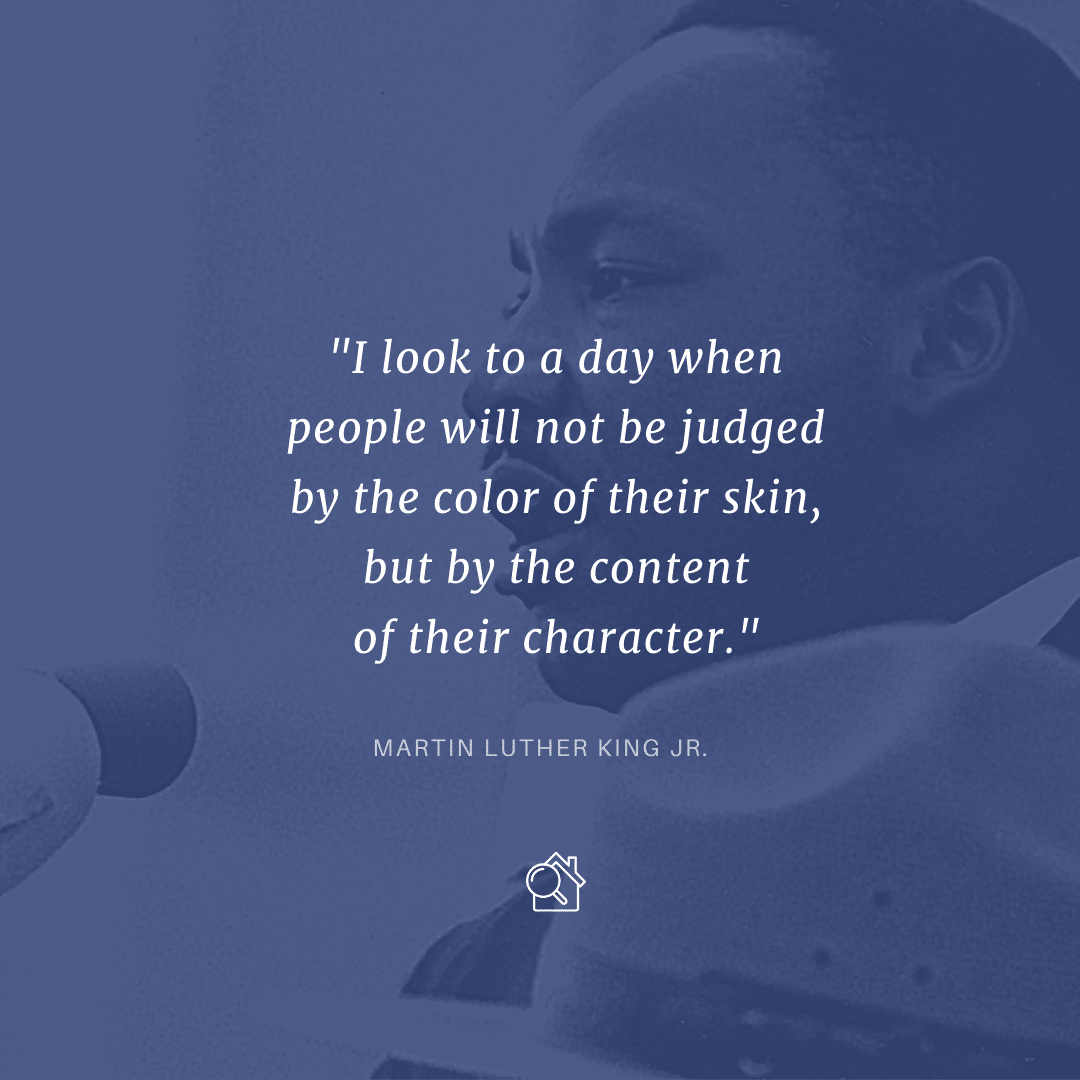
At Broadpoint Properties, we’re committed to ensuring fairness in every real estate deal, inspired by the principles championed by Martin Luther King Jr. Every day, whether we’re assisting buyers, sellers, tenants, or property owners, we uphold the values of the Fair Housing Law. When faced with situations that could perpetuate prejudice, we don’t shy away. Instead, we take action, using these moments to educate and raise awareness about the Federal Fair Housing Act, promoting fairness and equality in all our interactions.
How We Ensure Fairness in Every Real Estate Deal: What Is the Federal Fair Housing Act?
The Federal Fair Housing Act is officially known as Title VIII of the Civil Rights Act of 1968. It prohibits discrimination in the sale, rental, or financing of housing units based on race, color, religion, sex, or national origin. The Fair Housing Amendments Act that became effective in 1989 amended Title VIII to prohibit discrimination based on disability or familial status (e.g., households with children under 18 or pregnant women); add new enforcement mechanisms, and expand the Justice Department’s jurisdiction to file cases in federal court on behalf of victims.
California Fair Housing Laws: Fair Employment and Housing Act and Unruh Civil Rights Act

Long a bellwether of national trends and developments, California was among the first states to enact anti-discrimination legislation. In 1959, the Unruh Civil Rights Act was enacted to prohibit businesses from discriminating against individuals. From there, the California Legislature passed additional measures guaranteeing Californians’ rights,
The Unruh Civil Rights Act provides protection from discrimination by all business establishments in California, including housing and public accommodations, because of age, ancestry, color, disability, national origin, race, religion, sex, or sexual orientation, which according to case law includes homosexual, bisexual, or heterosexual individuals.
This law requires “full and equal accommodations, advantages, facilities, privileges or services in all business establishments.” This includes but is not limited to hotels and motels, non-profit organizations, restaurants, theaters, hospitals, barber and beauty shops, housing accommodations, public agencies, and retail establishments.
The Unruh Civil Rights Act also contains the requirements for the senior housing exemption. Housing accommodations that meet these requirements are exempt from the familial status provisions of the Fair Employment and Housing Act and may, therefore, legally discriminate against families with children.
The Unruh senior housing requirements apply to all types of housing except mobile homes. To be exempt from familial status discrimination, mobile home parks must meet the requirements set forth under the Federal Fair Housing (Amendments) Act of 1988 (as amended).
This law provides for a variety of remedies, including out-of-pocket expenses, cease and desist orders, or damages for emotional distress. Court-ordered damages may include a maximum of three times the amount of actual damages.
People who believe they have experienced discrimination may file a complaint with the Department of Fair Employment and Housing (DFEH). Complaints must be filed within one year of the alleged discrimination. Persons wishing to file directly in court do not need a “right-to-sue” from the DFEH.
In addition to the Unruh Civil Rights Act, California’s Fair Employment and Housing Act also:
- Prohibits discrimination and harassment in all aspects of housing (including sales and rentals, evictions, terms and conditions, mortgage loans and insurance, and land use and zoning).
- Requires housing providers to make reasonable accommodation in rules and practices to permit persons with disabilities to use and enjoy a dwelling and to allow persons with disabilities to make reasonable modifications of the premises.
- Prohibits retaliation against any person who has filed a complaint with the DFEH, participated in a DFEH investigation or opposed any activity prohibited by the Act.

The Fair Employment and Housing Act prohibits discrimination in all aspects of housing (rental, lease, terms, and conditions, etc.) because of familial status. Familial status is defined as having one or more individuals under 18 years of age who reside with a parent or with another person with care and legal custody of that individual (including foster parents) or with a designee of that parent or other person with legal custody. The familial status also includes a pregnant woman or a person who is in the process of adopting or otherwise securing legal custody of any individual under 18 years of age.
Housing that meets the legal definition of senior housing or housing for older persons is exempt from the familial status provisions of the Fair Employment and Housing Act. This means that such housing can legally discriminate against families with children. There are three categories of housing that meet this definition:
- Housing provided under any state or federal program that the Secretary of Housing and Urban Development (HUD) determines is specifically designed and operated to assist elderly persons, as defined in the state or federal program
- Housing that meets the standards for senior housing in sections 51.2, 51.3 and 51.4 of the Civil Code (Unruh Civil Rights Act)
- Mobile home parks that meet the standards for “housing for older persons” as defined in the Federal Fair Housing Amendments Act of 1988 and implementing regulations.
The law provides for a variety of remedies, which may include housing previously denied; out-of-pocket expenses, cease-and-desist orders, damages for emotional distress, reasonable attorney’s fees and costs, expert witness fees, civil penalties, or court-ordered punitive damages.
People who believe they have experienced housing discrimination may file a DFEH complaint. Complaints must be filed within one year from the date of the alleged discriminatory act.
(The italicized information in this article has been sourced from the California Association of Realtors website.)
If you have any questions about fair housing or how we can help with your real estate needs, don’t hesitate to reach out. Together, we can ensure fairness in every deal and make a positive difference in the lives we touch.
